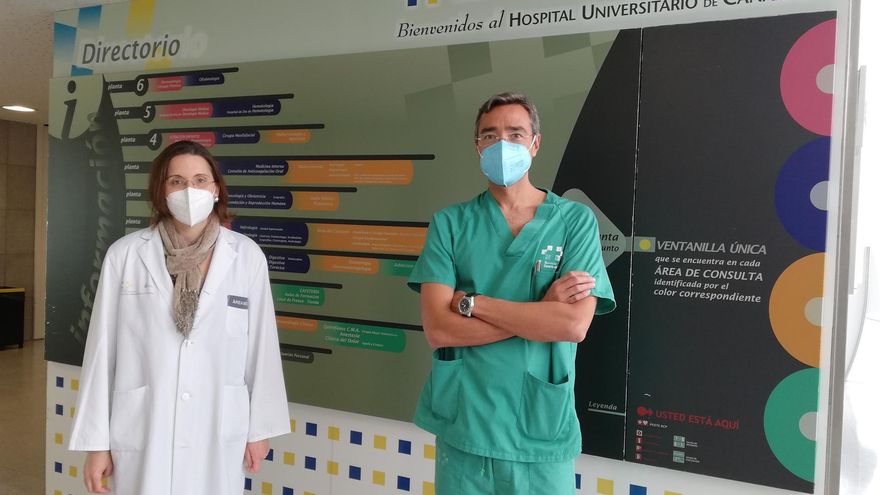
Professionals from the University Hospital Complex of the Canary Islands (HUC), given the evidence suggesting that the plasma concentrations of the drug trastuzumab conditioned the survival of patients with advanced gastric cancer, have developed a study to analyze whether the plasma levels of trastuzumab could affect the survival of these patients.
This is the Gastraz study carried out by the oncologist Raquel Hernández and the pharmacist and head of the Research Unit, Fernando Gutiérrez, which, after four years of research and the collaboration of more than fourteen national hospitals, has shown how a low drug concentration correlates with decreased survival.
The incidence of gastric cancer has decreased considerably in recent years, but it continues to be the fifth most frequent malignant neoplasm worldwide and the sixth leading cause of death from cancer in Spain and the third leading cause of oncological death worldwide.
It is a type of tumor that, despite the development that we are experiencing in molecular biology, is still an orphan in terms of genetic markers with which to establish selection strategies for patients who are candidates for selective action therapies to improve the results achieved. .
In the study carried out by the HUC professionals, 44 patients with a mean age of 65 years (46-83) have been included, 72.7% being male, and to obtain the results, more than 600 determinations of plasmatic levels of trastuzumab.
The GASTRAZ study has shown the correlation between certain levels of the drug, trastuzumab, and the efficacy, under conditions of routine clinical practice, of treatment for advanced gastric cancer. In such a way that the authors of this work consider that the “monitoring of trastuzumab must become a tool with which to increase the possibilities of therapeutic success in the treatment of this neoplasm.”
“This study demonstrates the teamwork between the Pharmacy and Medical Oncology services, the results of which provide great current knowledge in the management of our patients with advanced gastric cancer, always seeking to improve their survival with the highest quality of life,” says the Dr. Raquel Hernandez.
For his part, Dr. Fernando Gutiérrez highlights the collaborative work between two scientific entities, the Spanish Society of Hospital Pharmacy (SEFH) and the AGAMENON group of the Spanish Society of Medical Oncology (SEOM), and also highlights “the need to apply personalized medicine in the field of oncology, not only from the genetic point of view, but also in terms of pharmacokinetics”.
This work won the National Award at the 9th Congress of Medical Oncology, Hematology and Oncohematological Pharmacy Tendiendo Puentes, held in Toledo at the end of last November.















